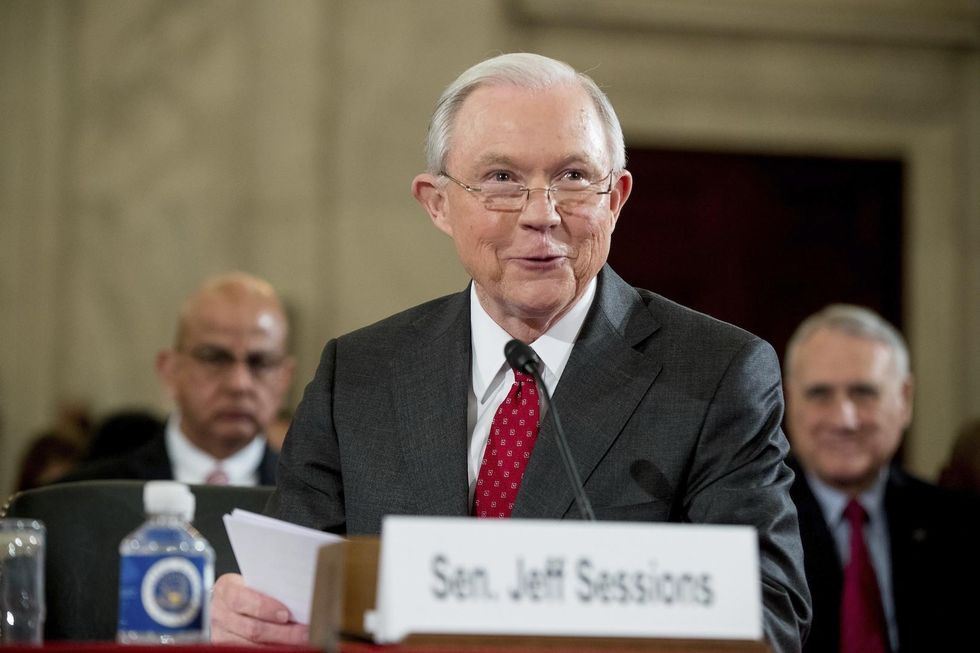
Attorney General-designate Sen. Jeff Sessions (R-Ala.) testifies on Capitol Hill Tuesday before the Senate Judiciary Committee. (AP Photo/Andrew Harnik)

During confirmation hearings for Attorney General-designate Sen. Jeff Sessions (R-Ala.) Tuesday morning, Sen. Patrick Leahy (D-Vt.) quizzed the nominee about his stance on Muslim immigration and whether he would support a ban on Muslims entering the United States.
President-elect Donald Trump, Sessions' would-be boss, proposed such a ban on the presidential campaign trail.
Leahy brought up a resolution he proposed last year that would ensure the government did not bar immigrants from coming into the country because of their religion, which Sessions voted against.
"Do you agree with the president-elect that the United States can or should deny entry to all members of a particular religion?" Leahy asked.
After Sessions clarified that he believed Trump explained that his position was to focus on countries with a history of terrorism and "strong vetting" of people coming in from those countries, Leahy asked Sessions why he voted against the resolution.
"Many people do have religious views that are inimical to the public safety of the United States," Sessions answered.
"But I have no belief and do not support the idea that Muslims as a religious group should be denied admission to the United States," he continued. "We have great Muslim citizens who have contributed in so many different ways."
In 2015, Sessions gave a 30-minute speech on the House floor arguing against Leahy's amendment and expressing that the U.S. should be able to use any criteria it deemed appropriate to decide who was allowed to enter the country — including religion.
"Many people are radicalized after they enter,” Sessions said at the time. “How do we screen for that possibility, if we cannot even ask about an applicant's views on religion? Would we forbid questions about politics? Or theology?”
"It’s time for us to think this through. And the classical, internal American religious principles I don’t think apply providing constitutional protections to persons not citizens who want to come here.” he stated.